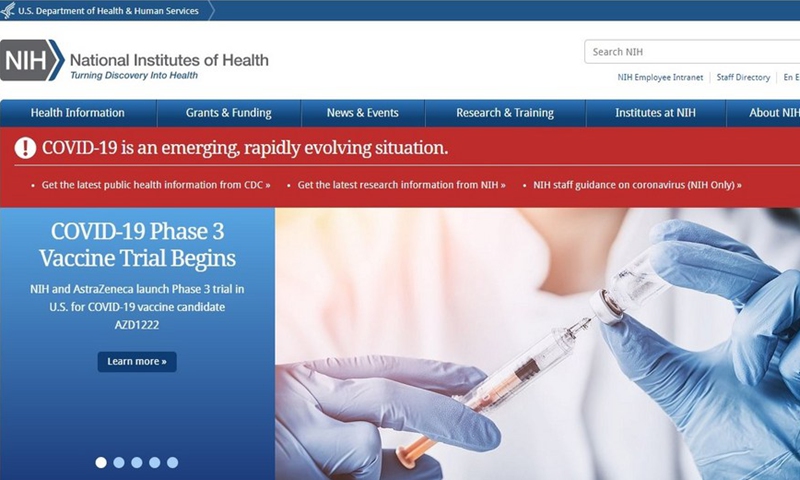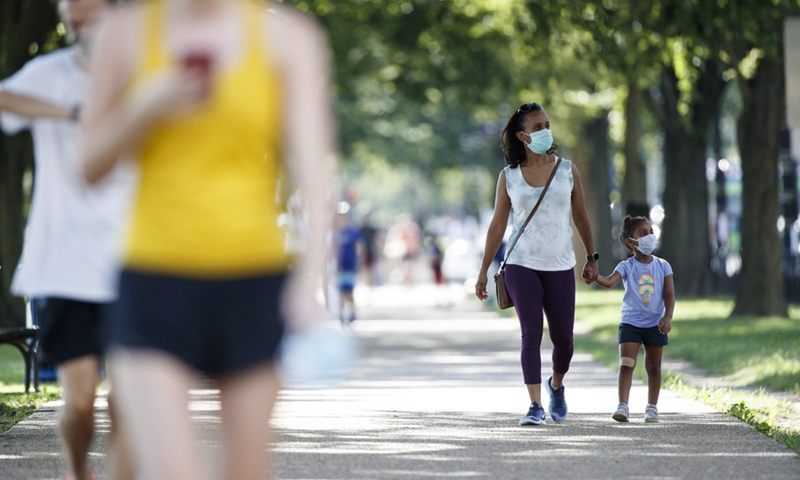Final phase clinical trial of AstraZeneca COVID-19 vaccine begins in US
Source: Xinhua Published: 2020/9/2 10:34:41

A screenshot taken from the website of the U.S. National Institutes of Health (NIH) on Sept. 1, 2020 shows the title and photo of its latest publication "COVID-19 Phase 3 Vaccine Trial Begins." (Xinhua)
A multi-site, Phase 3 clinical trial evaluating an investigational COVID-19 vaccine known as AZD1222 has begun, the US National Institutes of Health (NIH) announced on Monday.
The trial will enroll approximately 30,000 adult volunteers at 80 sites in the United States to evaluate if the candidate vaccine can prevent COVID-19.
Participants will be randomly assigned to the investigational vaccine group or the placebo group, and neither the investigators nor the participants will know who is assigned to which group.
After an initial screening, participants will receive two injections of either the investigational vaccine or a saline placebo approximately four weeks apart.

People tour the National Mall in Washington, D.C., the United States, Aug. 30, 2020. (Photo by Ting Shen/Xinhua)
One person will receive a placebo injection for every two people who receive AZD1222, which will result in approximately 20,000 people receiving the investigational vaccine and 10,000 people receiving a placebo.
The trial primarily is designed to determine if AZD1222 can prevent symptomatic COVID-19 after two doses.
The United Kingdom-based global biopharmaceutical company AstraZeneca is leading the trial as regulatory sponsor. The National Institute of Allergy and Infectious Diseases (NIAID), part of the NIH, and the Biomedical Advanced Research and Development Authority are providing funding support for the trial.
The vaccine candidate uses a non-replicating chimpanzee adenovirus to deliver a SARS-CoV-2 spike protein to induce an immune response, said the NIH.
Posted in: AMERICAS